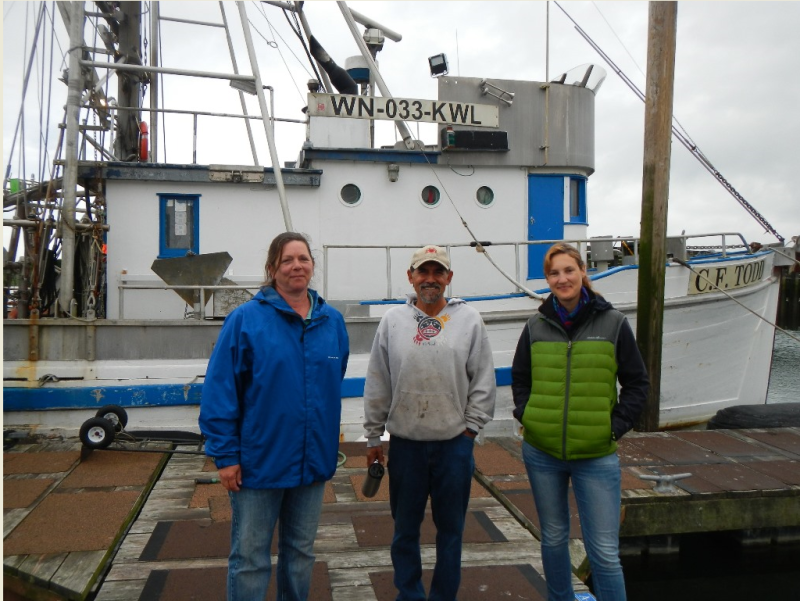The Nature Conservancy, the Quileute Indian Tribe, and the NOAA Marine Debris Program partnered to remove derelict crab pots from tribal waters off the Washington Coast and developed a sustainable reporting and annual recovery program for lost pots.
Type of Project: Community-based Marine Debris Removal Grant
Region: Pacific Northwest
Project Dates: July 2015 - June 2018
Who is involved?
The Nature Conservancy (TNC) and the Quileute Indian Tribe teamed up and removed derelict crab pots from 20 square miles along the Washington Coast and conducted trainings on how to locate and remove derelict crab pots with the support of a NOAA Marine Debris Program Community-based Marine Debris Removal Grant. The project also partnered with the North Pacific Coast Marine Resources Committee on education and outreach efforts at public events and meetings.
What is the project and why is it important?
Encompassing 20 square miles of the outer Washington Coast, the project area included the Usual and Accustomed fishing areas and stations of the Hoh and Quileute Indian Tribes and the Quinault Indian Nation, who depend heavily on the ocean for their economic well-being and cultural identity. The project area also overlaps with the Olympic Coast National Marine Sanctuary, which is a highly productive upwelling zone that draws diverse sea life including marine mammals and seabirds, as well as commercially and recreationally important species such as Dungeness crabs, salmon, halibut, and other ground fish. The Dungeness crab fishery in this area is one of the most economically important fisheries in Washington, with an average annual harvest of more than 14 million pounds for the past 20 years.
Unfortunately, a side-effect of this booming Dungeness crab fishery is gear loss and the subsequent bycatch and entanglement of sea life. In Washington State, an estimated 120,000 crab pots are deployed annually, with an approximate loss rate of up to 10% each year. Although Washington has regulations that require the design and construction of crab pots to include escape rings which minimize ghost fishing, lost crab pots are still responsible for unnecessary crab mortality, damage to habitats, and entanglement and mortality of marine mammals and other important species. In addition, derelict lines and buoys can act as navigational hazards, getting snagged on passing vessels.
For this project, TNC and the Quileute Indian Tribe planned to survey for and remove an estimated 300 derelict crab pots and 400 lost crab pot lines and buoys from the project area over the course of two seasons, when the crab fisheries are closed. TNC and the Quileute Department of Natural Resources also developed a reporting and recovery program in consultation with the tribal fishing community, which built upon a program developed by TNC and the Quinault Indian Nation and modelled after a crab pot recovery program implemented by the Washington Department of Fish and Wildlife.
In addition, this project conducted education and outreach that covered these removal efforts, the recovery program, and how fishermen can report and recover lost pots. TNC and the Quileute Department of Natural Resources also lead outreach with tribal and non-tribal fishermen through meetings and presentations about how to report lost gear and participate in the recovery program. Trainings for both the Quileute Department of Natural Resources and the Quinault Division of Natural Resources Wildlife Enforcement Personnel were also part of this project and reviewed how to disentangle marine mammals from fishing gear. TNC and the Quileute Indian Tribe also partnered with the North Pacific Coast Marine Resources Committee and amplified the reach of these messages.
 An official website of the United States government.
An official website of the United States government. 

